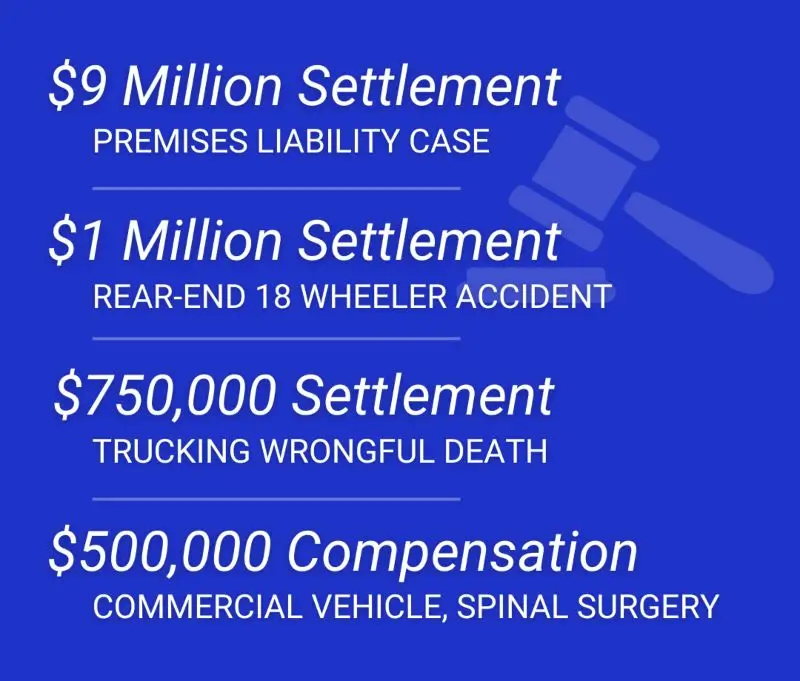Experiencing a car accident is distressing enough without the added frustration of a prolonged settlement process. Many people find themselves asking, “Why is my car accident settlement taking so long?” Understanding the factors that contribute to delays can help manage expectations and reduce anxiety.
Initial Investigation and Evidence Collection
The settlement process starts with a thorough investigation. Insurance companies need to gather all relevant evidence, which includes police reports, witness statements, medical records, and more. This step is necessary to build a complete picture of the accident and determine liability. Depending on the complexity of the accident, this stage can take several weeks or even months.
Insurance adjusters must verify all details, which sometimes requires interviews with witnesses, visiting the accident scene, and reviewing traffic camera footage if available. Each piece of evidence must be carefully examined to ensure its validity and relevance to the case. This thoroughness, while time-consuming, is essential for an accurate assessment.

Determining Liability
Establishing who is at fault is a key part of the settlement process. If liability is clear, the process moves much faster. However, if there is any dispute about who caused the accident, additional investigations may be required. This can involve expert analysis, accident reconstruction, and further witness interviews. Disputes over liability can significantly extend the settlement timeline.
Accident reconstruction specialists might be called upon to provide detailed reports and testify about the circumstances of the accident. Their analyses can include studying vehicle damage, skid marks, and other physical evidence to recreate the event. This detailed work is vital for determining fault but it can extend the settlement timeline, especially in complex cases.
Medical Treatment and Recovery
In many cases, the full extent of injuries sustained in an accident might not be immediately apparent. Victims need to reach a point of maximum medical improvement (MMI) before settling. This means that they have recovered as much as possible from their injuries. Settling before reaching MMI can lead to inadequate compensation for future medical expenses. Therefore, the duration of medical treatment can directly impact how long a settlement might take.
Medical professionals need time to evaluate the injuries and predict long-term effects, which can include ongoing treatment, rehabilitation, or surgeries. These medical evaluations are necessary to determine the compensation needed to cover all medical expenses, both immediate and future.
Negotiation Process
Once liability is established and medical treatments are complete, the negotiation phase begins. Both parties, the claimant and the insurance company, will discuss a fair settlement amount. This can involve several rounds of offers and counteroffers. If the initial offer from the insurance company is too low, negotiations can drag on as the claimant’s lawyer fights for a fair amount. This back and forth can add weeks or even months to the process.
During negotiations, each side presents arguments and evidence to support their proposed settlement amounts. This often involves detailed discussions of medical bills, repair costs, and non-economic damages like pain and suffering. Effective negotiation requires patience and strategy, with lawyers often leveraging their experience to push for higher settlements.
Insurance Company Tactics
Insurance companies sometimes employ tactics to delay settlements. They might hope that a claimant will accept a lower offer out of frustration or financial necessity. It’s important to remain patient and persistent during this stage. Having an experienced lawyer can help overcome these tactics and keep the process moving forward.
Delaying tactics can include slow responses to communication, requesting unnecessary documentation, or challenging every aspect of the claim. Understanding these tactics and having a legal representative who can counter them is essential for avoiding lowball offers and achieving a fair settlement.
Legal Processes and Court Involvement
If a fair settlement cannot be reached through negotiation, the case might proceed to litigation. This involves filing a lawsuit and possibly going to trial. Legal proceedings can be lengthy, involving pre-trial motions, discovery (where both sides exchange evidence), and court dates. Even after a trial, there could be appeals, which further extend the timeline. Although most cases settle before reaching trial, the threat of litigation can sometimes expedite settlement negotiations
The discovery process itself can be extensive, requiring depositions, subpoenas, and the examination of extensive documentation. Each side aims to gather as much evidence as possible to build a strong case, which can take months or even years. While this stage is needed for a thorough legal process, it can add considerable time to the settlement process.
Caseloads of Lawyers and Courts
The availability and workload of the lawyers and courts involved can also affect the timeline. Lawyers with heavy caseloads might take longer to progress each case. Court schedules can be backlogged, especially in jurisdictions with high volumes of cases. This can lead to delays in setting hearing dates or trial dates, adding to the overall time taken to settle.
Court efficiency varies widely by location. In some areas, courts may be dealing with significant backlogs, causing delays in scheduling hearings and then trials. In addition, the availability of judges and courtrooms can impact how quickly a case moves through the system.
Complexities of the Case
Each case is unique and certain complexities can add to delays. For example, multi-vehicle accidents often involve multiple insurance companies and parties, which can complicate negotiations. Complex cases with severe injuries or significant property damage also tend to take longer to resolve. Accidents involving commercial vehicles or public entities might require additional procedures and considerations. If government entities are involved, there may be added bureaucratic steps, each with its own timeline.
Final Settlement Approval
Once the settlement agreement is reached, it needs to be documented and signed by all parties involved. This might require additional paperwork and formalities. In some cases, a judge might need to approve the settlement, particularly if it involves minors or structured settlements. These final steps, although simply procedural, can still add some time to the process.
Making sure that all paperwork is complete, correctly completed, and filed can prevent last-minute delays. Lawyers typically handle these details, but any errors or omissions can lead to further delays, requiring additional time to rectify.
Communication Breakdowns
Delays can also occur due to communication breakdowns between the claimant, their lawyer, and the insurance company. Miscommunication or lack of timely updates can stall the process. Promptly responding to requests for information and updates can minimize delays caused by lapses in communication. Clear and consistent communication is key to keeping the settlement process moving along smoothly.
Ways To Expedite The Settlement Process
While some delays are inevitable, there are ways to potentially expedite the settlement process:
- Timely Medical Treatment – Seek medical attention immediately after the accident and follow through with all recommended treatments. Prompt and thorough medical documentation helps in assessing the extent of injuries faster.
- Accurate Documentation – Keep detailed records of all accident-related expenses, medical treatments, and communications with insurance companies. Organized documentation can streamline the evidence collection phase.
- Clear Communication – Maintain open and clear communication with your lawyer. Promptly provide any requested information or documents to avoid unnecessary delays.
- Legal Representation – Hiring an experienced personal injury lawyer can significantly impact the speed of the settlement process. Experienced lawyers know how to navigate the complexities, handle negotiations, and counter delay tactics used by insurance companies.
- Realistic Expectations – Understand that the settlement process could be lengthy. Being prepared for potential delays and having realistic expectations can help manage frustration.
Conclusion
It’s common to feel that your settlement is taking forever, but understanding the various factors at play can provide some clarity. The settlement process involves multiple stages, each requiring careful attention and thorough investigation. From initial evidence collection to final approval, each step plays an important role in ensuring a fair outcome. Patience, persistence, and professional legal assistance are key to navigating this process effectively.
By understanding the reasons behind the delays. You can better manage your expectations and work proactively with your lawyer to move your case forward. While the timeline may seem lengthy, the ultimate goal is to achieve a settlement that accurately reflects the extent of your damage and provides you with the compensation you deserve.
Settling an accident claim is rarely a quick process, but with the right approach and understanding, you can navigate the complexities and eventually reach a satisfactory resolution. Staying informed and proactive will help you manage the waiting period and keep the process on track.
Where to Go for the Best Representation
If you’ve been injured due to someone else’s negligence, whether in a car accident, bus accident, or workplace incident, your quality of life is at risk. At the Nava Law Group, P.C., our personal injury attorneys understand that each case is unique and demands a tailored approach for success. We are committed to helping you regain your standard of living by pursuing financial recovery from the responsible party. Our goal is to alleviate the financial burden injury victims face by addressing medical bills, lost wages, and other financial challenges. To schedule a free consultation for your case, contact us via our website or call our offices at 713-661-9900.








